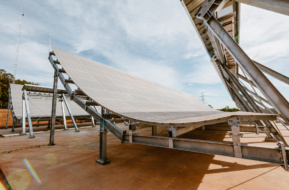The US and the Philippines announced plans on Monday to increase cooperation in space on SSA and maritime domain awareness, according to a White House readout of Philippine President Ferdinand R. Marcos Jr.’s visit to DC.
“Recognizing the importance of enhancing and sustaining joint efforts in outer space activities, the leaders also welcome their countries’ plan to prioritize and strengthen bilateral space cooperation,” President Joe Biden and Marcos wrote in a joint statement.
Teamwork makes the dream work: The two countries are planning to hold their first US-Philippines Civil Space Dialogue, the White House said. Officials are also working to boost bilateral cooperation in space in areas such as:
- Disaster management and emergency response
- Healthcare
- Monitoring pollution
- Deforestation
- Infrastructure planning
- Image sharing under the Landsat program
Three makes a trend: The agreement with the Philippines is the second of three international space partnerships expected from the Biden administration in the span of a week. The others:
- US and South Korean officials signed a joint statement of intent to increase cooperation in orbit during Korean President Yoon Suk Yeol’s state visit on April 26.
- Czech officials are also expected to be at NASA HQ on Wednesday to become the newest signatory to the Artemis Accords.




